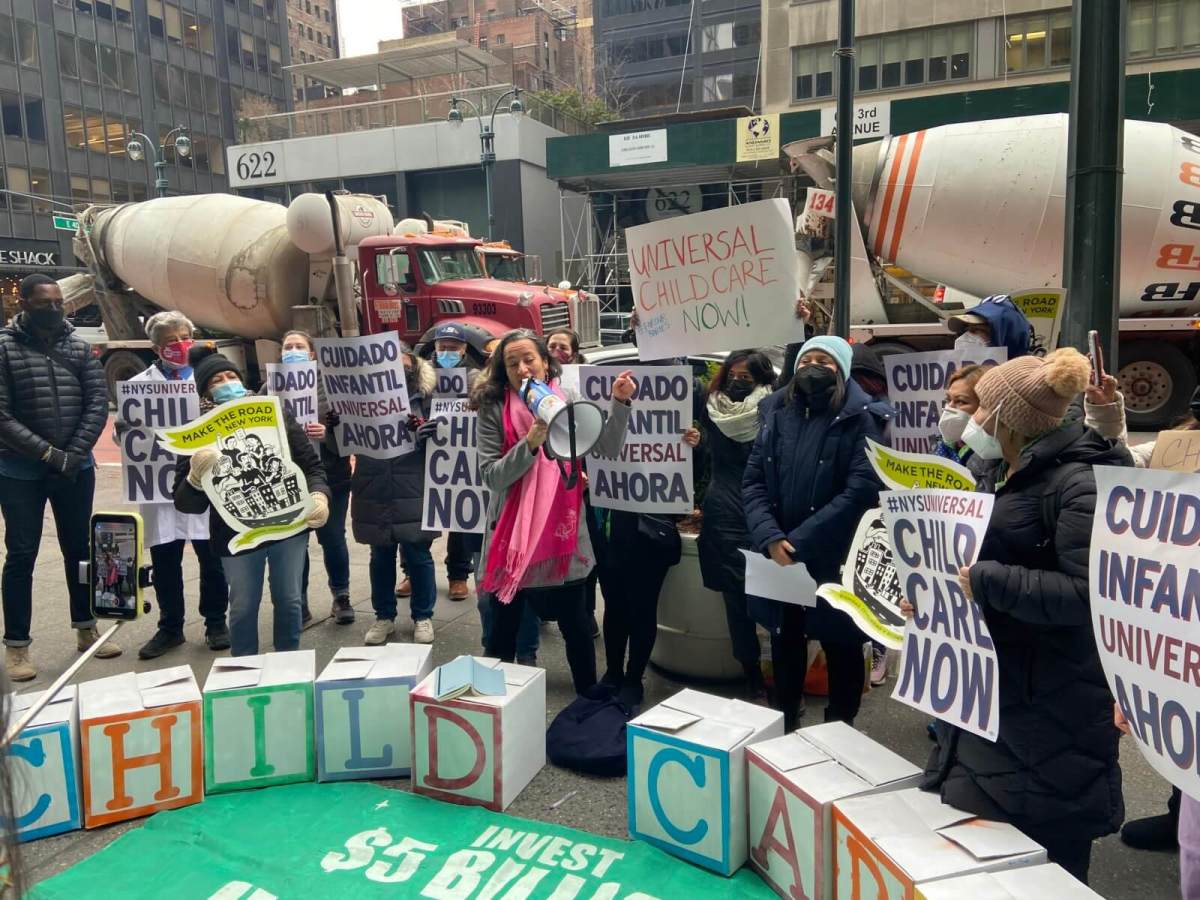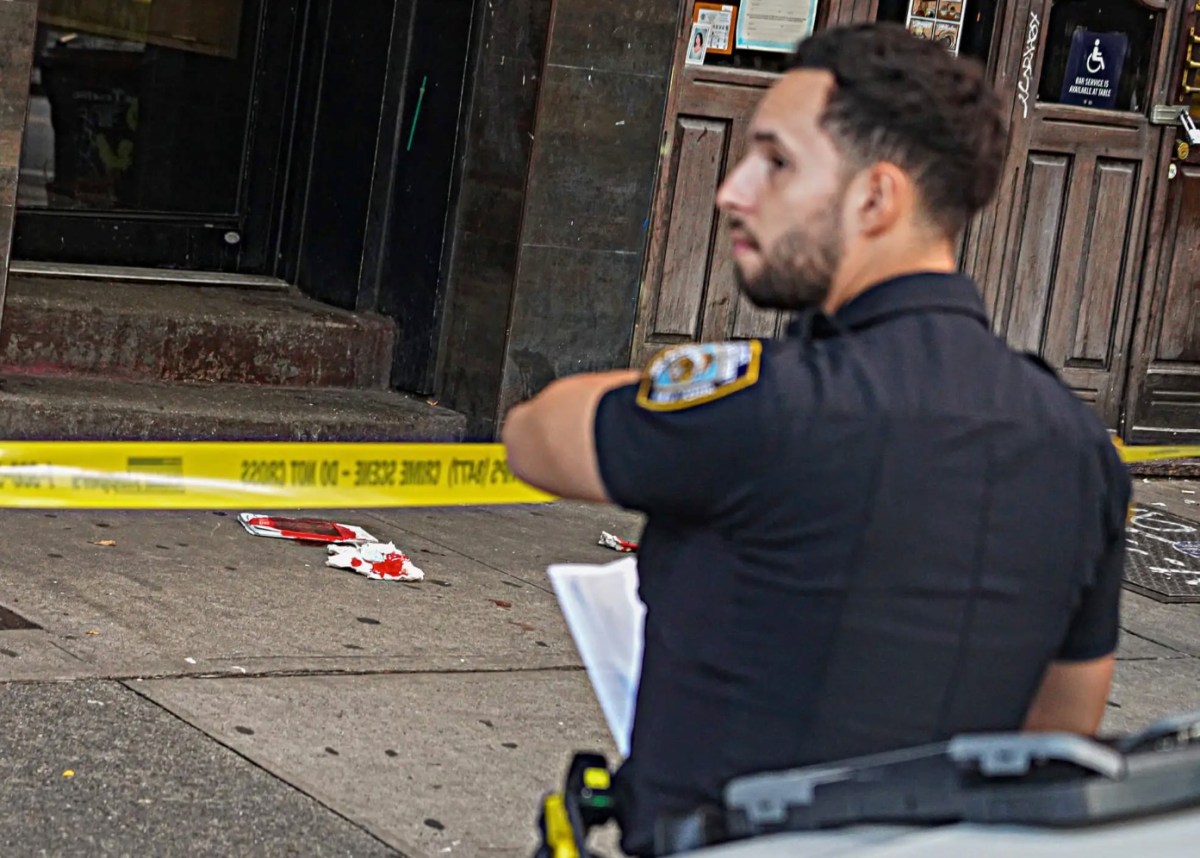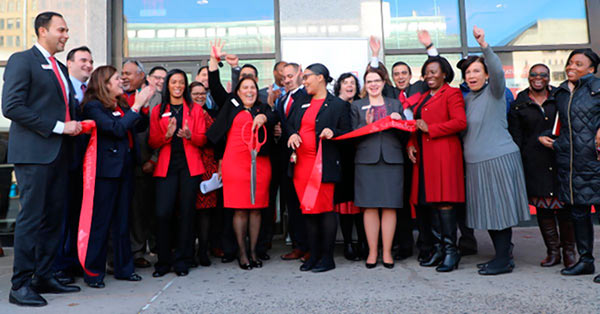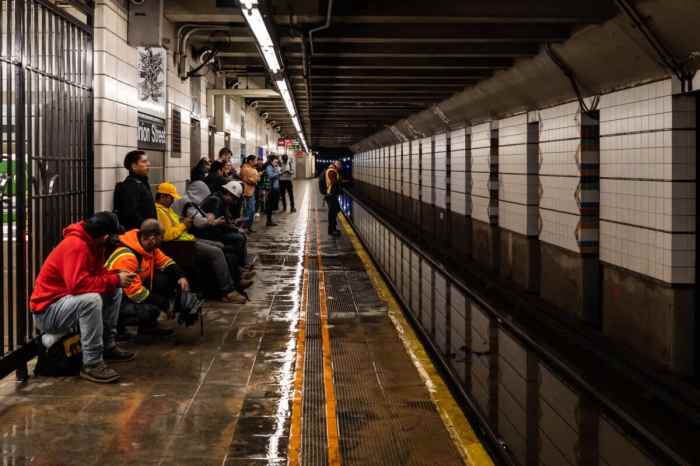As New York City stakeholders and leaders have their eye on the city’s economic recovery efforts, one of the industries severely hampered by the pandemic — the child care industry — is facing a crisis where providers are struggling to stay open, child care workers are facing low pay and long hours, and working parents are seeing little in quality and quantity.
In 2017, the Bronx had 3,358 regulated child care programs. Fast forward to 2022, and now there are roughly 2,827 child care programs left, according to the state — with child care deserts developing in areas of Middletown, Hunts Point and the north Bronx.
“So many of our child care providers have been closing their doors. But this crisis also extends to the child care workers who aren’t making enough to stay in the industry,” said Diana Perez, director of Home-Based Childcare Services at WHEDCo. “This system is difficult for families to navigate, it’s difficult for them to afford the cost of care … When these issues all come together they affect your quality of care.”
Across the state, as the COVID-19 pandemic put a chokehold on regular business practices and more people spent time at home, 9,500 child care providers in the state either closed their doors or cut programs. As working parents resume a life that involves more in-office trips — a recent Bright Horizons survey found that 62% of working parents felt that continuity of in-person schooling or child care is essential to their ability to work — they find their options limited or below their expected standard of care.
More than 75% of infants and toddlers in the Bronx whose families rely on publicly funded child care are cared for within a home-based care business, according to data compiled by All Our Kin, a nonprofit that trains and supports child care educators. And advocates argue that such a reliance highlights the urgent need for greater funding from the state.
Lawmakers clearly see the need for wholesale improvements of its child care sector, as the Democratic-controlled state Legislature wants to boost funding for housing, child care and home care in Gov. Kathy Hochul’s record-setting budget.
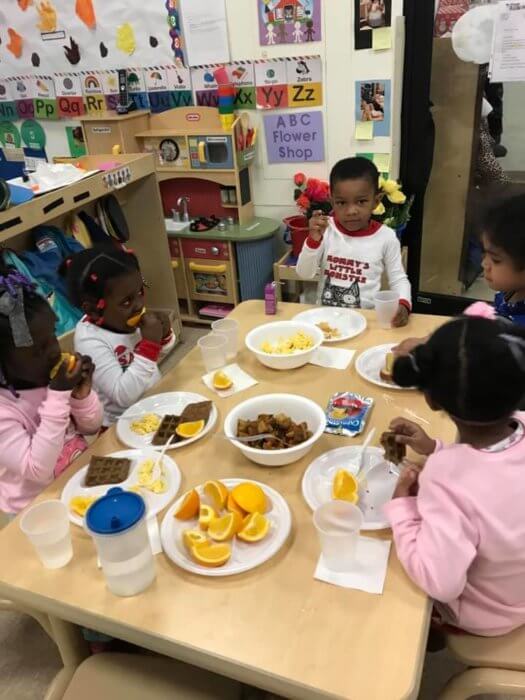
The Senate is proposing to spend $2.2 billion over the next year.
Over the next four years, under the Senate’s proposal New York state would expand access to subsidized child care to households earning up to 500% of the federal poverty level — $138,750 for a family of four. Therefore, as part of that expansion, an average NYC family would spend $16,250 a year for children under the age of 2, or $1,354 monthly; $11,648 a year on children between 3 and 5, or $971 monthly; and $9,620 a year for school-aged children (6-12), or $802 monthly.
Additionally, the state would cap co-pays at up to 10% of household income for families between 300% and 500% of the federal poverty level.
The Assembly’s proposal includes more than $3 billion in child care investments to expand eligibility for subsidies from the current 200% level to 400% over three years, and both the Senate and Assembly would boost funding for universal pre-K by $250 million and $150 million, respectively.
Hochul wants the state to save $5 billion in this year’s budget, however lawmakers say that ignores New Yorkers’ needs now.
For advocates, recovery doesn’t happen without a revitalized child care industry and systemic changes to the industry will also benefits those workers and providers who have been “marginalized and undervalued” for years.
Two North Bronx child care providers said their business is paid $200 and $150 per week per child by the state to care for families with child care vouchers. After subtracting costs for rent, insurance and employee wages, the business might only be making less than $40 per week for each child.
“Without quality child care, you will not have a workforce that can be engaged,” said WHEDCo’s Perez. “You have to rebuild child care, we have to establish access for our family and ensure that workforce is supported. I think that’s the priority.”
The Office of Children and Family Services said in a statement to the Bronx Times that it will be administering $70 million in grant funding to new licensed, registered or permitted child care programs in areas of the state without sufficient child care slots, known as child care deserts.
Providers interested in opening a new child care program may submit a grant application starting mid-April until mid-May 2022, with award announcements expected in June 2022. The grant application portal will be available on the OCFS website.
Reach Robbie Sequeira at rsequeira@schnepsmedia.com or (718) 260-4599. For more coverage, follow us on Twitter, Facebook and Instagram @bronxtimes.

